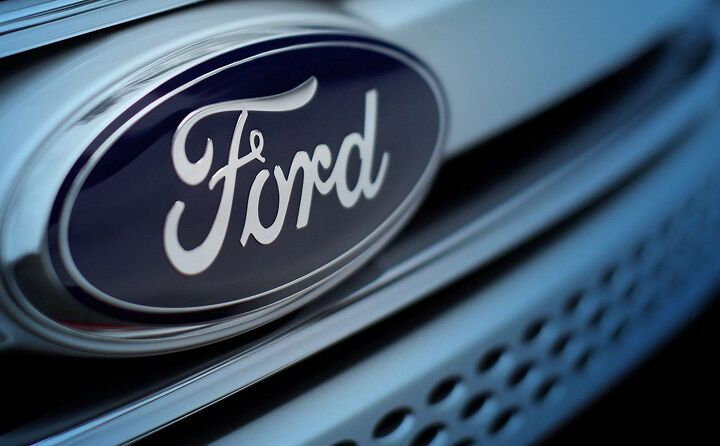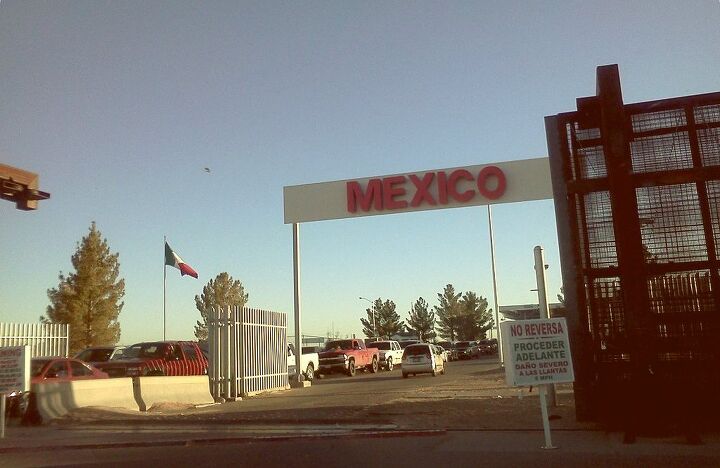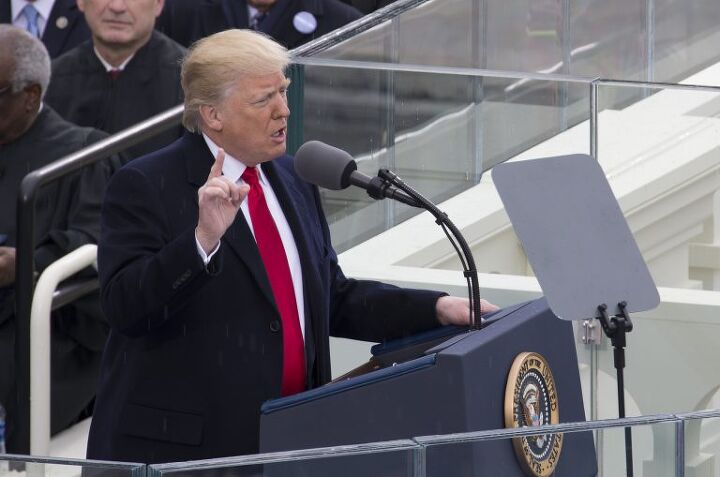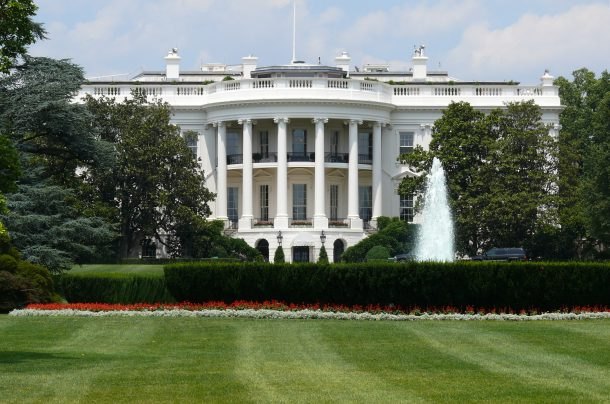#nafta
Lighthizer Confirmed as U.S. Trade Representative After Waiver Approval
I hope you’re fond of domestic automobiles.
The Trump administration is setting the table to make importing cars more difficult with the U.S. Senate confirming Robert Lighthizer in an 82-14 vote as the U.S. trade representative, prepping the country for an assertive trust from the White House’s America First trade strategy.
Former UAW President Supports Trump's NAFTA Overhaul, Less Enthusiastic About the Man
The former president of the United Automobile Workers, Bob King, says he supports President Trump’s plan to reconfigure the North American Free Trade Agreement — so long as it maintains labor’s best interests. Ironically, King’s support of the president’s trade plan came as he attended an Ann Arbor rally in support of an EPA testing facility in danger of being closed due to Trump administration budget cuts.
King, who served as the union’s president from 2010 to 2014, faults the trade pact for a loss of American jobs. It’s his belief that NAFTA allowed automakers to invest in more-affordable regions — like Mexico — at the expensive of the United States’ workforce. His successor, Dennis Williams, has echoed these claims and also wishes to see NAFTA reformed.
Ford Has a Few Pointers for Trump as NAFTA Negotiations Loom
Ford Motor Company thinks it has the answers for the impending renegotiation of the North American Free Trade Agreement. Joe Hinrichs, Ford’s president of the Americas, believes the key to an updated NAFTA includes protections against currency manipulation and the standardization of product regulation between the United States, Canada, and Mexico.
Of course, Hinrichs is just one voice of many. Despite his initial threat of NAFTA’s abolishment failing to pan out, President Trump has maintained a hardline stance — stating he will negotiate a better deal for the U.S. (or pull out if he can’t). Meanwhile, Democratic Senator Sherrod Brown has urged for transparency throughout the process while echoing some of Trump’s campaign promises to stick up for American jobs by not showing favoritism or allowing industries to play against each other.
By contrast, Hinrichs’ proposals are specifically focused on streamlining the auto industry and avoiding long-standing complications associated with financial witchcraft.
Old Man Lutz Weighs in on Donald Trump, Tesla Motors, and the State of the U.S. Auto Industry
If you’re unfamiliar with Bob Lutz, it’s likely that you’re a recent addition to the world of automotive enthusiasm. Allow me to be the first to welcome you. The rest of us have been following Lutz’s career shift from extremely outspoken auto executive to extremely outspoken car blogger for years. Now 85, he hasn’t become any less critical of the industry after entering his “retirement,” nor has his advanced age done much to soften his frank rhetoric.
Love or hate him, Lutz’s time spent jumping between the Big Three has provided him with unique insights — and he always has plenty to say on the current state of the American automotive industry. His most recent revelations circle around the unsustainable nature of Tesla and his growing distaste for president Trump, despite his having voted for him.
Trump Administration Now Seeking More Modest Changes to NAFTA
The Trump administration is changing its tune regarding the North American Free Trade Agreement.
Despite the president calling the pact the “worst deal” in history throughout his campaign and hinting his goal was to abandon the agreement, the White House intends to keep numerous provisions while seeking more moderate changes.
Among the more controversial arrangements Trump intends to keep are the arbitration panels that permit investors in the three nations to circumvent local courts to resolve civil claims. The administration even has a proposal that would improve these bodies’ procedures to resolve disputes.
Is this the bold trade overhaul that Trump promised on the campaign trail?
NAFTA Abolishment Looms Less Large as Trade Posturing Subsides Between U.S. and Mexico
Now that Mexican negotiators aren’t reacting specifically to President Trump’s heated rhetoric over foreign trade policies, their terror and rage has begun to subside. The North American Free Trade Agreement might even continue to exist for the time being.
Trump’s previous attacks on NAFTA, import tariff threats, and promise of a border wall incensed Mexican officials to a point where many suggested Mexico should simply abandon the renegotiation talks on principle. However, now that cabinet officials will be speaking on behalf of the president and the focus of the negotiators have shifted toward the fundamentals — and not the politics — Mexico can relax a little.
Mexican Economy Minister Will Say 'Bye-Bye' to NAFTA Talks If Tariffs Are Imposed
Ildefonso Guajardo, Mexico’s senior trade negotiator, reaffirmed his position to break off talks to reconfigure NAFTA, saying his country will completely abandon talks if the United States continues threatening levies and caps on products coming in from its southern border. He said Mexico will refuse to even consider the kind of tariffs President Trump has discussed and revert back to World Trade Organization rules. Under those guidelines, the most the U.S. could impose on a Mexican product would average 3 percent.
“The moment that they say, ‘We’re going to put a 20 percent tariff on cars,’ I get up from the table,” Guajardo said in an interview. “Bye-bye.”
Why Does Canada Trump Mexico in Eyes of New U.S. President?
Since the inauguration of U.S. president Donald Trump, Canadian political and auto industry officials have taken every opportunity to highlight the economic prosperity and millions of jobs that depend on cross-border trade. And the lobbying seems to have paid off.
At a joint press conference following the first official meeting Monday between Trump and Canadian Prime Minister Justin Trudeau, the U.S. leader praised the economic ties between the two countries.
“We have a very outstanding relationship with Canada. We’ll be tweaking it,” said Trump. “We’ll be doing certain things that are going to benefit both of our countries.”
At the same time, he took a swipe at the trading relationship with Mexico, calling it “unfair to the United States.”
Trump's NAFTA Remarks Point to Few Changes for Canada, Plenty for Mexico
After several weeks spent wondering just how the continent’s trade landscape will look after president Donald Trump renegotiates the North American Free Trade Agreement, the business world now has a slightly clearer picture of where the pieces may land.
Trump spoke briefly about his trade goals with both Mexico and Canada after meeting with Canadian Prime Minister Justin Trudeau at the White House.
Depending on the Automaker, a Border Tax Could Bump Sticker Prices by Thousands
Automakers are waiting with bated breath to see where the pieces land once President Donald Trump complete’s the country’s trade revamp. One proposal would see a border tax of 20 percent placed on goods imported from other countries — a move that would impact the cost of manufacturing vehicles, and buying them.
Not every automaker would see a similar financial hit. Domestic manufacturers that use a high degree of parts built in the U.S., especially those that build few models in Mexico for delivery in the States, wouldn’t see much on an impact. For those that import most or all of their U.S. fleet from foreign factories, the cost per vehicle could be enormous. Customers, of course, would need to make up the difference.
While the tax proposal might come to nothing, a recent study shows what consumers could expect to see on window stickers if the idea becomes policy.
Uncertainty Reigns as Trump Hits the Throttle on NAFTA Reform
President Donald Trump doesn’t want to waste any time renegotiating — or replacing — the North American Free Trade Agreement.
Yesterday, Trump announced his intention to speed up the start of negotiations, leading to much diplomatic scurrying and plenty of confusion among the ranks of North American suppliers. No one knows how the trade landscape will look once talks wrap up.
While the move aims to boost U.S. employment, many U.S. companies, as well as America’s neighbors, fear downsides from potential tariffs.
Trump Proposes 20-percent Tax on Mexican Goods to Pay for Wall; Other Countries Could Take a Hit
Consumer products and vehicles produced outside of the U.S. could see a big hike in sticker price if the Trump administration goes ahead with a proposed plan to tax Mexican goods — and eventually all foreign goods — to the tune of 20 percent.
The White House said today the measure is being looked at as part of a wide-ranging tax overhaul package under consideration by Congress. The announcement came after an anticipated visit by Mexican President Enrique Pena Nieto went south.
The Big Three Go to Washington: Breakfast Ensues, While Mexico Stews
At the start of the second real workday of the Trump administration, the leaders of the Detroit Three automakers marched into the White House for a breakfast meeting with their newly minted president.
We don’t know for sure what they ate, but we can relate what they talked about. This won’t come as a shock: investment. Specifically, assembly plant investment in the U.S., rather than Mexico.
Ford CEO Mark Fields, General Motors CEO Mary Barra and Fiat Chrysler Automobiles CEO Sergio Marchionne knew the landscape they were entering. Yesterday, Trump signed an executive order that pulled the U.S. out of the Trans-Pacific Partnership and moved to renegotiate the North American Free Trade Agreement. Today, he signed an executive action to advance approval of the Keystone XL and Dakota Access pipelines.
Deals. Besides perhaps eggs and toast, Trump wanted deals. Or, at this early point, promises and assurances at the very least.
No Fixed Abode: The Perks (And Perils) Of Protectionist Policies
“Like any good capitalist, I firmly believe that automakers need competition to produce their best and most innovative work.” That’s what my colleague and occasional pal Stef Schrader on Jalopnik wrote yesterday, in a column titled Protectionism Is Only Good If You Love Really Terrible Cars. I doubt neither Stef’s sincerity nor her diligence; she hits all the traditional marks in her piece, from Allegro to Trabant, and she does it with style.
I am not a good capitalist. Not any longer.
For most of my life, I was; I’ve been mostly self-employed since I was 19, and I’ve never asked for help from anybody save for three weeks’ worth of unemployment payments in 1995. I always looked at life as a battle that went to the strongest, and I never felt inadequate in the face of the challenge.
Once I became a father, however, I started wondering about my son’s prospects, and the prospects of his contemporaries. What if they didn’t have the strength, or the luck, that I’ve had? Should they be just tossed aside by the global economy, discarded forever just because they couldn’t win a race to the bottom with seven billion other desperate souls?
If the former president of the Miami University Entrepreneurial Society (yes, guilty as charged) can read Adbusters and start worrying about factory conditions around the globe, perhaps that means everything out there is up for grabs. And it’s worth asking the question: Could a new round of protectionist policies, intelligently conceived and applied, change our lives as drivers, consumers, and workers — for the better?
Canada's Detroit Three Union Boss Seems Pretty Darned Pleased After Trump's Trade News
Reactions are varied following this morning’s announcement that President Donald Trump will renegotiate the North American Free Trade Agreement and pull the country out of the Trans Pacific Partnership.
North of the border, however, the leader of Canada’s Detroit Three autoworkers was apparently dancing a jig. Unifor president Jerry Dias seemed thrilled when he appeared on talk radio to sing the praises of the president’s executive actions. Trump’s moves are “a great opportunity to right the ship,” he said.





























Recent Comments